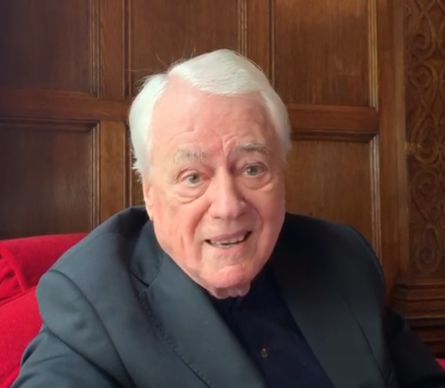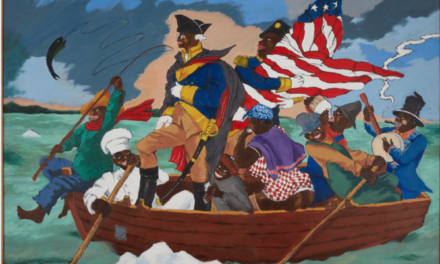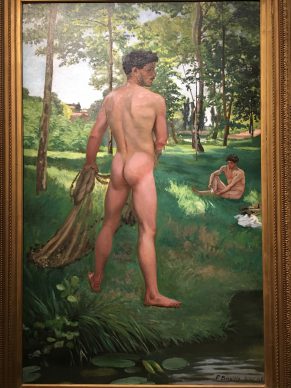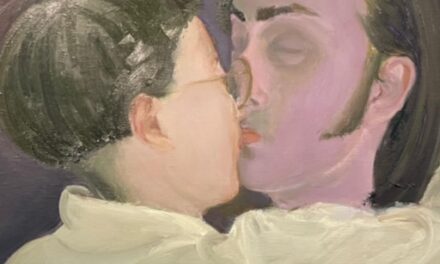Multifaceted and ever-changing reality
Besides the heat that extinguishes all possibility of articulated thought, today’s world is animated by extreme and evolving forces that make it very difficult to read phenomena and produce relevant creation.
Incisive thinkers
Within this multifaceted and ever-changing reality, there are a few particularly incisive thinkers.
Eliasson, Kentridge
People who make you feel more intelligent after meeting them. In this category, my recent encounters with Olafur Eliasson (see the report) and William Kentridge (see the report) have certainly contributed.
Alexander Kludge
Alexander Kluge (born in 1932) also belongs to this small circle which looks beyond its own little speciality to embrace our world, from Marcel Proust to television.
THE VIDEO INTERVIEW
He perfectly played the game of responding to key words while displaying great enthusiasm for this speedy process filmed on a mobile phone.
Eclectic Biography
I didn’t know the german and director writer before, but I noticed that our paths had crossed after skimming through his very rich, very broad and very eclectic biography.
Chris Dercon
It was the new director of France’s Réunion des Musées Nationaux, Chris Dercon, who recommended that I meet him when he was invited to talk about the moon and other metaphysical explorations and to screen his films,
Thaddaeus Ropac
At the same time the Thaddaeus Ropac gallery was exhibiting his collaboration with two artists from their gallery, Anselm Kiefer and Georg Baselitz.
Dercon says: “Kluge links everyone together, he also links ideas together.”
Anachronic statements
Kluge produces anachronistic statements like: “Kant killed too many ghosts in the 18th century. He had to reimport them from Japan. With Baselitz we found them in Hokusai.”
Baselitz, Kiefer
Or on the Brothers Grimm’s Sleeping Beauty: “Along with Baselitz and Kiefer we are advocates of the 13th fairy, the one that is excluded in the tale.”
Eve’s rib
And also on the importance of mothers and women, in reference to the biblical Adam: “we are philosophers who have come from Eve’s rib.”
Jean Luc Godard
Kluge, who is at the origin of a movement similar to the Nouvelle Vague in Germany, has an unbridled admiration for the filmmaker Jean Luc Godard. He describes the latter’s work as a representation of “the dark side of the moon”. To which Godard replies: “the dark side of the moon is found deep within ourselves”. A good way of summing up Kluge’s thinking: talking about the most distant of things, in time and space, leads us to the deepest core of ourselves.
Adorno & Fritz Lang
To reach such a proliferation of destinations, the German author was lucky enough to have had two exceptional masters, the philosopher Theodor W Adorno who curiously led him to another master, the filmmaker Fritz Lang.
Marcel Proust
Adorno told him that after Marcel Proust, it wasn’t worth even trying to write.
Fragmented narrative
Hence for Alexander Kluge the only solution was a fragmented narrative. In his book “Stalingrad”, on the famous battle from 1942-43 between the Germans and the Russians, instead of starting out with a description he compiles an array of objective information like, for example, weather reports for the place on these dates. “I have never felt the cold at Stalingrad with such intensity,” observes the writer and war specialist Jean Yves Jouannais.
One minute films
To sum up, Kluge’s specialities are cinema (“I specialize in one-minute films”), television, and writing and today he is currently collaborating with artists. He comments: “I collaborate with minds that can do what I cannot.”
Thomas Demand
In the art world he’s made his mark recently by staging, among other things, an exhibition at the Prada Foundation in Venice in 2017 with Thomas Demand and Anna Viebrock called “The Boat is Leaking. The Captain Lied”.
Gerhard Richter
He’s also produced two books with Gerhard Richter, including “December” featuring 39 texts on the darkest month of the year accompanied by photos. In French his books are published by Gallimard and POL. In English they’re published by Seagull.
Philosophy begins in wonders
Kluge often quotes the Aristotelian phrase: “philosophy begins in wonder”. This 87-year-old man has wholly preserved this particular virtue.
Potlatsch Trip 1 Variation by Alexander Kluge:
Donating=Supporting

Support independent news on art.
Your contribution : Make a monthly commitment to support JB Reports or a one off contribution as and when you feel like it. Choose the option that suits you best.
Need to cancel a recurring donation? Please go here.
The donation is considered to be a subscription for a fee set by the donor and for a duration also set by the donor.














